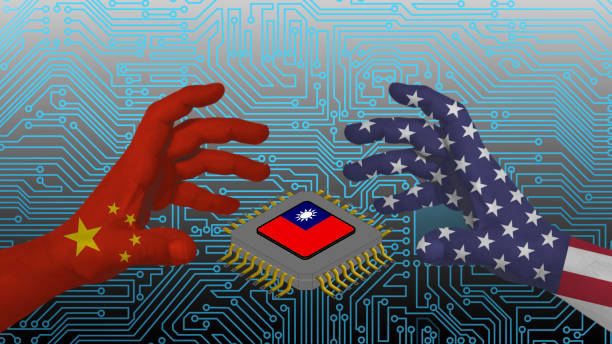China, a significant global leader with the second strongest economy in the world, is now threatening the US for its support of Taiwan's independence. Recently, at the Shangri-La Dialogue, a key security summit held in Singapore, Chinese Defense Minister Dong Jun stated, "Whoever dares to split Taiwan from China will perish and suffer his own destruction." He emphasized that Taiwan falls entirely within China's internal affairs and warned against external interference. Following his speech, US Defense Secretary Justin Lyod released a statement, asserting that war with China is neither imminent nor inevitable. He highlighted that the great superpowers must manage tensions and avoid conflict, reaffirming his commitment to supporting Taiwan to maintain peace in the region.
The Possibility of War Between Superpowers
Could there be a chance of war between these superpowers, given the ongoing China-US conflict? The US has been supporting Taiwan with arms, weapons, and military supplies in case of an invasion by China. To understand the stakes, let's explore the interests of these superpowers because, in geopolitics, nothing happens without a clear interest. So why are China and the US so focused on Taiwan? To grasp this, we need to delve into the history of Taiwan.
A Brief History of Taiwan
Taiwan's history dates back ten thousand years, with indigenous peoples living on the island for millennia. The first significant influx of Chinese settlers began in the 17th century. In 1895, after losing the First Sino-Japanese War, China ceded Taiwan to Japan, which ruled the island until the end of World War II in 1945.
After Japan's defeat in World War II, Taiwan was returned to Chinese control. However, the Chinese Civil War soon followed, leading to the rise of the Communist Party in mainland China. In 1949, the Republic of China (ROC) government, led by the Nationalist Party (KMT), retreated to Taiwan after being defeated by the Communists. The ROC established its government in Taiwan, while the People's Republic of China (PRC) was founded on the mainland.
In contemporary times, Taiwan has developed into a prosperous and democratic society, whereas mainland China remains under communist rule. Today, Taiwan operates as a separate political entity with its own government and democratic institutions, although it is not universally recognized as an independent country.
China's Interest in Taiwan
Why does China want Taiwan so badly? China's leaders in Beijing believe in the "One China" policy, which asserts that all parts of China must be unified. They see Taiwan as a breakaway province that must be reunited with the mainland. In many interviews, Chinese officials have reiterated that there is only one China, and Taiwan is part of it. Taiwan's strategic location and its economic and technological advancements are also significant to China.
The US Perspective on Taiwan
Why is the US taking a stance in favor of Taiwan? The US has a complex relationship with Taiwan, balancing its "One China" policy with strong unofficial ties to the island. The US provides Taiwan with defensive arms and has committed to supporting Taiwan's self-defense under the Taiwan Relations Act. Strategically, Taiwan is crucial for the US to counter China's influence in the Asia-Pacific region and ensure freedom of navigation in the South China Sea. Additionally, Taiwan's advancements in technology and innovation, particularly in semiconductor manufacturing, are integral to the US maintaining its technological edge globally.
The Risk of War
What is the chance of war? Some experts believe that if a conflict were to break out between the US and China, it would not be a "short, sharp" war but rather a prolonged conflict lasting years. This view highlights the extensive military capabilities and economic resources of both nations, suggesting that any military engagement would be complex and enduring. Others believe that the interdependence of both nations can act as a deterrent against war, as both countries would suffer significant economic losses, and the global economy would be adversely affected due to many countries' dependency on these superpowers.
Conclusion
In conclusion, while the potential for a full-scale war or a third world war exists due to the high-stakes nature of US-China relations, many experts believe that strategic, economic, and diplomatic factors work to prevent such an outcome. However, the risk of unintended escalation remains a significant concern.











0 Comments